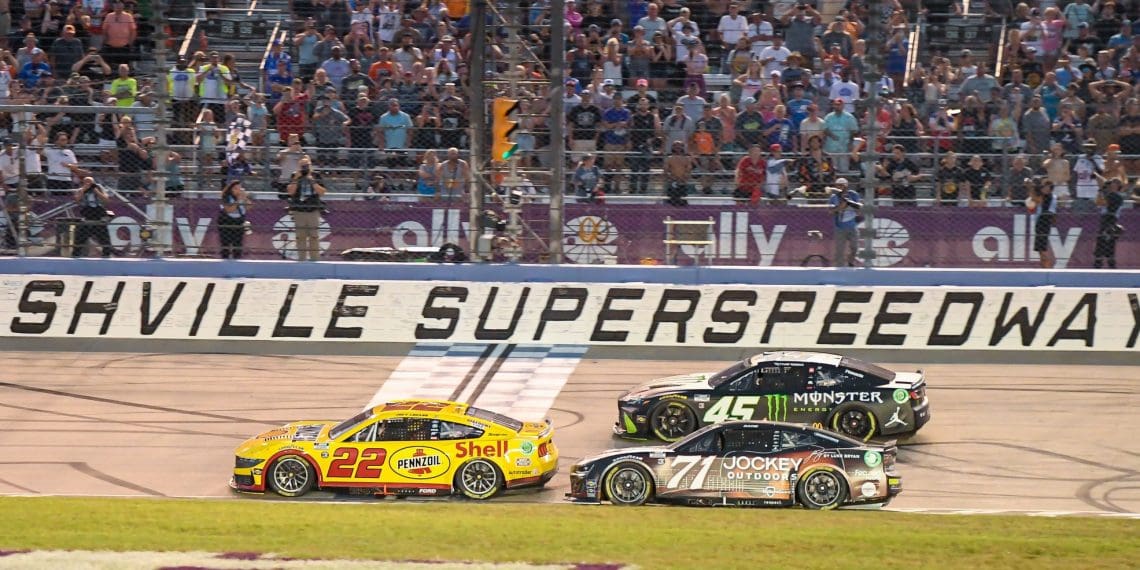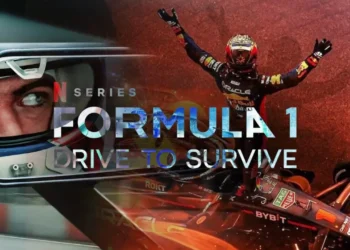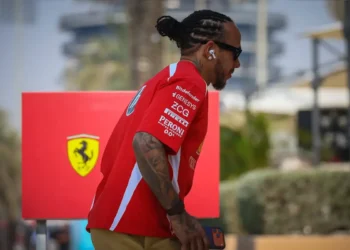The high-stakes legal clash between NASCAR and 23XI Racing/Front Row Motorsports (FRM) has sent shockwaves through the racing world, creating a clear divide between veteran insiders and the new generation of teams. While Michael Jordan and Denny Hamlin’s 23XI Racing battles for what they see as a fairer financial structure, old-school veterans are rallying behind NASCAR’s authority, calling for gratitude over reform.
The Veterans’ Perspective: “You Don’t Know How Good You’ve Got It!”
Industry veterans like Rick Mast and Larry McReynolds have openly voiced their support for NASCAR, lamenting what they perceive as a lack of appreciation for the charter system. For them, the charters—which guarantee a team’s spot on the grid—are a luxury that didn’t exist during their racing days.
- Rick Mast’s Take:
“We didn’t have a net. We lost a lot of sponsorships because teams failed to make races. This thing (charters) came along to protect the teams… And now, NASCAR’s got it, and we’re like, ‘Man, you guys don’t really understand how good you’ve got it right now compared to how we had to deal with it.’”
Mast pointed to legendary teams like Junior Johnson & Associates and Bud Moore Engineering, which folded due to the financial struggles of missed sponsorships and failed qualifications. To the veterans, the charter system represents stability and a safeguard against financial collapse.
The Case for Change: A Broken Business Model?
Despite the protection charters offer, the current NASCAR financial model is undeniably under strain. Sponsorship dollars are dwindling, operating costs are skyrocketing, and even powerhouse teams like Hendrick Motorsports are struggling to break even.
- Jeff Gordon’s Revelation:
“I don’t think Hendrick Motorsports has made a profit in 10 years. And then you say, ‘Why do you do it?’ Well, it’s because Rick Hendrick loves the sport.”
The dependence on passion rather than profitability is unsustainable, argue 23XI Racing and FRM. Their lawsuit claims NASCAR’s system is monopolistic, limiting teams’ ability to negotiate equitable revenue sharing and operational freedom.
Adding to the pressure is NASCAR’s move to consolidate power by mandating parts suppliers and acquiring International Speedway Corporation, leaving teams with less autonomy and higher costs.
A Generational Divide: Passion vs. Profit
The core issue seems to be a philosophical divide:
- Veterans: Teams should race for the love of the sport, embracing the stability that charters provide, even if profits are elusive.
- Modern Teams: Financial sustainability is critical. NASCAR must share its growing revenue pie more equitably to ensure the long-term health of teams and the sport itself.
The Stakes for the Future of NASCAR
While the veterans dismiss 23XI Racing’s efforts as a futile power grab, the modern teams see this lawsuit as a chance to redefine NASCAR’s business model. Rick Mast summed up the tension succinctly:
“Owners not making profits—why the hell are you doing it? But teams will never have a place at the table next to NASCAR.”
This underscores the fundamental question: Can NASCAR evolve its financial system to meet the demands of today’s economic realities without compromising its control?
Fan Debate: Where Do You Stand?
- Team NASCAR: Do you side with the veterans, believing that charters have already brought more stability and opportunity than previous generations ever enjoyed?
- Team 23XI/FRM: Or do you support the push for reform, advocating for a financial overhaul that gives teams more revenue and bargaining power?
Let’s hear your take on this battle that could shape NASCAR’s future! Are the old-timers right, or is it time for a new era in racing?










